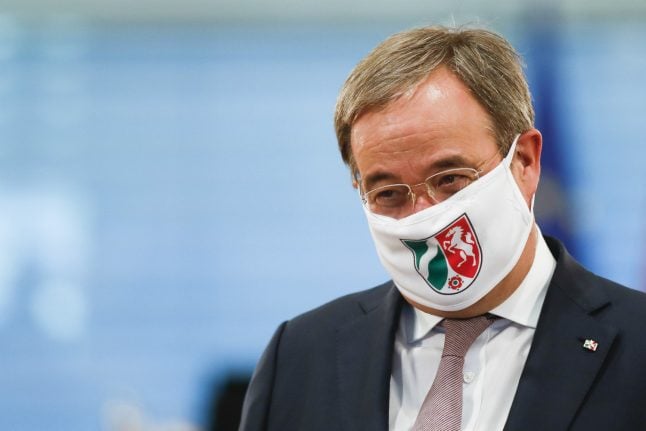Armin Laschet is the premier of Germany's most populous state of North Rhine-Westphalia, where more than 700 people have tested positive for COVID-19 after an outbreak at a slaughterhouse in the Gütersloh district.
Asked on Wednesday what the new outbreak says about the lifting of restrictions to dampen transmission in the state, Laschet replied: “It says nothing at all about that, because Romanians and Bulgarians went in there and that is where the virus comes from.”
He later attempted to back track on the comments, telling the Rheinische Post that he was merely highlighting the risks of international travel and it was unacceptable “to blame people of any origin for the virus”.
Critics have rounded on Laschet, with Foreign Minister Heiko Maas, who was visiting Sofia on Thursday, calling them “highly dangerous” and demanding an apology.
Maas' Bulgarian counterpart Ekaterina Zaharieva also called the comments “unacceptable”.
“The virus doesn't know borders. Bulgarians contribute a lot to the economy of North Rhine-Westphalia,” she said.
For Lars Klingbeil, general secretary of the Social Democrats, the junior partners in Merkel's coalition government, the comments were “scandalous” and should put a lid of Laschet's political ambitions.
“Anyone who argues in this way, who stirs up resentment in this way, who divides, is not fit to run for chancellor — and certainly not fit to be chancellor,” he told Bild Live.
Merkel's conservative CDU party is set to elect a new leader at the end of 2020.
READ ALSO: From 'avenger' to 'anti-Merkel': Who could be Germany's next chancellor?
Laschet is a prime candidate, having thrown his hat in the ring when the chancellor's hand-picked successor Annegret Kramp-Karrenbauer stepped down earlier this year.
Running against him for the CDU top job is corporate lawyer Friedrich Merz.
The winner would in turn be well placed to lead Merkel's centre-right CDU-CSU bloc into general elections in autumn next year.
But another challenge for the chancellor's post could still come from the CDU's Bavarian sister party CSU, whose leader Markus Söder is seen as a hopeful.



 Please whitelist us to continue reading.
Please whitelist us to continue reading.
Member comments